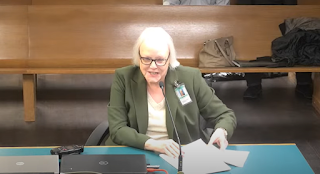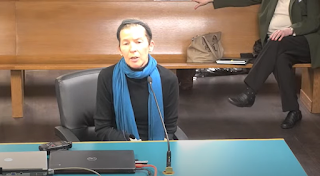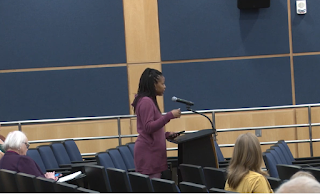Oconee County’s three state legislators will face a tough choice if a bill seeking to make all school board elections in the state nonpartisan comes before them when they return to Atlanta for the General Assembly session that starts on Monday.
Kathy Hurley, chair of the Oconee County Republic Party, said the local party would like to keep Oconee County school board elections partisan, saying that in the current political environment “there is no such thing as a nonpartisan election.”
Eric Gisler, co-chair of the Oconee County Democratic Party, said the local Democratic Party does not believe the elections should be partisan because partisan races shift voter attention from the ideas put forth by the candidates to their party affiliation.
All five of the current Board of Education candidates ran as Republicans, but three of the five incumbents said partisan elections are not essential.
A fourth took no stand, and one was in favor of continued partisan elections.
Only Rep. Houston Gaines of the three members of the Oconee County General Assembly delegation was willing to take a position in advance of the meeting of the General Assembly, saying that he does not feel the state should dictate whether local school board elections are nonpartisan.
Rep. Marcus Wiedower ignored requests for his opinion, while Sen. Bill Cowsert acknowledged the requests but was unwilling to take a stand.
Cowsert, Gaines, and Wiedower are Republicans, and the proponent of nonpartisan school Board races in the General Assembly is Republican Sen. Clint Dixon, chair of a Senate Study Committee on Non Partisan Elections for Local School Board Members.
Dixon’s Initiative
During the special session last November, Dixon filed legislation that would have made elections for the Gwinnett County Board of Education nonpartisan. Dixon is from Buford and represents parts of Gwinnett County in the Senate.
 |
| Payne, Jackson, Dixon, Anavitarte (L-R) Meeting 12/16/2021 (Female Assistant Not Identified At Meeting) |
Gwinnett County has shifted from Republican to Democratic in recent years, and currently the Gwinnett School Board is made up of three Democrats and two Republicans.
The Senate took no action on Dixon’s bill, but on Nov. 18 Lt. Governor Geoff Duncan appointed members a Senate Study Committee on Nonpartisan Elections for Local School Board Members.
Duncan appointed Dixon as chair of the committee and Sen. Jason Anavitarte, R-- Dallas, Sen. Lester Jackson, D--Savannah, and Sen. Chuck Payne, R--Dalton as members.
The Committee was tasked with meeting “periodically” between the time of its appointment and the beginning of the 2022 Legislative Session “to receive feedback from education stakeholders and members of the public on potential legislation concerning this matter.”
It held public hearings on Dec. 10 and Dec. 16, but as of Saturday had filed no presentations or documents on the Senate web site.
Oconee County And Partisan Elections
In November of 1964, Oconee County voters decided to elect members of the Board of Education, rather than have them be appointed by the Grand Jury.
The initiative approved by the voters did not specify that elections would be partisan, but Oconee County Attorney Daniel Haygood said elections in Georgia are partisan unless there is an affirmative Act of the legislature making them non-partisan.
Justin Pauly, Director of Communications at the Georgia School Board Association, said in an email on Dec. 21 that 109 of the state’s 180 school districts have nonpartisan elections.
The Georgia School Boards Association, in its 2022 Legislative Positions, has said that it “supports legislation calling for the non-partisan election of local school board members.”
Recent Oconee Elections
Oconee County Democrats have had difficulty putting forward competitive candidates for recent school board elections.
In 2020, Democrats qualified for Post 4 and Post 5, but no Democrat filed for Post 1, the Board Chair. The Post 4 candidate got a little more than 28 percent of the vote, and the Post 5 candidate got a little less than 30 percent.
In 2018, Democrats qualified for Post 2 and Post 3, and each got only a little more than 26 percent of the vote.
In 2016, the party did not qualify any candidates for Post 1, Post 4, or Post 5.
Response of Two Local Party Leaders
On Dec. 24, and again on Dec. 28, I wrote via email to both Hurley from the Republican Party and Gisler and Co-Chair Melissa Hopkinson from the Democratic Party, giving them background on the two meetings of the Senate Study Committee.
I asked: “Do you favor a continuation of the election of Oconee County Board of Education members by party, or would you prefer that Oconee County Board of Education elections be nonpartisan?”
Hurley wrote back on Dec. 27:
“Our belief is that the vast majority of voters finds the partisan nature of the Board of Education elections to be beneficial by providing them an insight as to how candidates of either party react on most issues as well as their outlook on use of public funds.
“We also believe that with the vast divide between the two mainstream parties there is no such thing as a nonpartisan election,” she wrote.
Gisler wrote on Dec. 29:
“The Oconee County Democratic Committee agrees that Board of Education races should not be partisan. Everyone in our community has an interest in creating safe schools that offer the best possible education to all of our children.
“Partisan Board of Election races unfortunately have the effect of shifting the focus away from ideas that candidates put forth and instead focus voter attention on the letter next to their name on the ballot. That is a disservice to our children and our community.”
Board Member Responses
I sent the same question, via email, to each of the five current members of the Oconee County Board of Education.
Board Chair Kim Argo (Post 1) wrote on Dec. 27, saying: “Whether the elections are partisan or nonpartisan, it will not impact us. We make our decisions based on what is best for the students enrolled in the Oconee County School System.”
Vice-Chair Amy Parrish (Post 2) wrote on Dec. 28: “I don’t have a strong opinion either way as I’ve not experienced it as an issue in our community.”
Post 4 Board Member Tim Burgess wrote on Jan. 5.
“I believe that the primary focus and motivation for each of the current Board members is to ensure that Oconee County maintains a high quality school system that is focused first and foremost on the students and their success,” he wrote.
“Political considerations are not part of this objective. This debate is a non issue for me,” he said.
Post 3 Board Member Wayne Bagley never responded to the two email requests.
Ransom’s Detailed Answer
Post 5 Board Member Michael Ransom wrote a detailed response on Dec. 28:
“The primary purpose of the school board is to provide the best education possible to the students and to serve the families of the county regardless of political affiliation.
“Ideally, anyone involved with schools would put the concerns of the students and families first and political affiliation would not be a factor. However, it is naive to think that all members of a school board or those interested in running for the school board are apolitical and completely non-partisan.
“Having candidates declare a party affiliation does allow for more transparency and gives a general sense of what topics the candidate may prioritize.
“Unless voters take the time to educate themselves on each particular candidate, a partisan designation can provide helpful basic information on where that candidate stands.
“Also, I think that having primaries allows for more time for candidates to be vetted as well as lessens the potential need for run-off elections.
“Ultimately, students are the priority and candidates/elections should reflect that regardless of any designations.”
Response From Legislators
I wrote to Gaines, Wiedower, and Cowsert on Dec. 22 and again on Dec. 28. In the email, I referenced the Senate Committee meetings and wrote:
“If the Committee were to recommend legislation that would require local school boards to be elected on a non-partisan basis, this could affect Oconee County, one of 71 school systems currently with partisan elections of board members. Barrow County is another school system with partisan elections.
“At this point, are you in favor of legislation that would require all school districts in the state to have nonpartisan elections for school board members?”
Wiedower, representing nine of Oconee County’s 12 precincts in the 119th House District, did not respond to either email.
Cowsert’s legislative assistant, Cyndie West, responded to the emails on Dec. 28, saying: “Thank you for the information. I have sent to Senator Cowsert for review.”
I have not heard back from Cowsert, who represents the 46th Senate District, which includes all of Oconee County.
Both Cowsert and Wiedower have been interviewed by WGAU News Director Tim Bryant in recent days about the upcoming legislative session.
Bryant did not ask about the work of Dixon’s committee, and neither of them mentioned it in their preview of the session.
Response From Gaines
Houston Gaines, who represents the 117th House District, wrote me on Dec. 28.
“Generally speaking, when it comes to the BOE, I believe this decision is best left to be decided on a community by community basis,” he said.
“As you know, I represent counties that have different approaches to this issue, and I don't think a statewide mandate for nonpartisan BOE elections is the best path forward,” he added.
Gaines’ 117th House District includes three precincts in Oconee County (Bogart, Marswood Hall, East Oconee), as well as parts of Barrow County, Jackson County, and Athens-Clarke County.
Barrow County has partisan elections. Jackson County has partisan elections, though Jefferson City Schools in Jackson County has nonpartisan elections for its school board.
Clarke County school board elections are nonpartisan.
Changes In Senate District 46
Cowsert’s 46th Senate District includes all of Oconee County, parts of Athens-Clarke County, and parts of Walton County.
Walton County school board elections are nonpartisan.
Cowsert’s new 46th Senate District, will include all of Oconee County, parts of Athens-Clarke County, and parts of Walton County.
It also will include parts of Barrow County, and parts of Gwinnett County, Dixon’s base and the source of his initiative to covert the school board elections from partisan to nonpartisan.
The three Oconee County representatives have not publicly sought out opinion locally on the issue of partisan versus nonpartisan election of school board members.
Two Hearings
No one from Oconee County–or from Athens-Clarke County–attended the two public hearings held last month by the Senate Study Committee appointed by Lt. Governor Duncan.
“Legislative proposals concerning education must be crafted in a delicate manner while encompassing input from leaders at all levels of government,” Duncan said in announcing appointment of the Senate Study Committee in November.
 |
| Palm At Meeting 12/10/2021 |
“This newly-developed committee was created in response to calls from education advocacy organizations calling for nonpartisan school board elections and statewide public input,” according to his statement.
“Members will meet periodically between now and the 2022 Legislative Session to receive feedback from education stakeholders and members of the public on potential legislation concerning this matter,” he continued.
The first public meeting was held Dec. 10 at the State Capitol.
Six people showed up to speak, four of them about their concerns about the Gwinnett Board of Education and Gwinnett County Schools.
First Hearing
Angela Palm, director of policy and legislative services for the Georgia Schools Board Association, said at that meeting that “It has long been the position of our members that election of school board members should be nonpartisan.”
 |
| Harsch-Kinnane At Meeting 12/10/2021 |
“Being nonpartisan will not make anybody apolitical,” she said, “but it is the beginning to removing that and saying your focus is the education of these children,” she said.
“The children aren't Democrats or Republicans,” she continued. “They’re children there to get an education.”
Cecily Harsch-Kinnane, Policy and Outreach Director for Public Education Matters Georgia and a former Atlanta Board of Education member, said local communities should decide whether the election is partisan or nonpartisan.
“If you are partisan, you can go nonpartisan,” she said. “There is already that law that's in place. So I do think that the decision should be left up to local communities.”
“Our local communities know our local communities the best,” she said. “This isn’t something that needs to be done at the state level.”
Second Hearing
The second hearing was at the Lawrenceville campus of Gwinnett Technical College. Fifteen people spoke, and the two-hour-long session focused almost exclusively on Gwinnett County Schools.
 |
| Scott At Meeting 12/16/2021 |
Tamara Scott a parent who spoke, said in “the discussion about changing the composition of the school board, I'm still not hearing from anyone how this benefits our students, how it will protect our students, how it enriches the education of our students.
“That's what the board's function is,” she said.
“If this proposal somehow improves what our children get in the classroom, if it improves and advances the funding that our schools get, if it helps my tax paying dollars to go further, certainly who wouldn't support it?” she said.
“But I have not heard that argument,” she said. “It feels like a partisan attempt to take over the board.”
Esther Dunn followed Scott and said she has two sons in Gwinnett County Schools.
 |
| Dunn At Meeting 12/16/2021 |
“My two sons are neither Democrat or Republican, liberal or conservative,” she said. “This is not something that they think about at any point in their lives at the moment.”
“The point is,” she continued, “politics is not on the list, nor should it be, for those we elect to the school board.
“In my opinion, anyone running for the position must love kids, want the best for them, and be willing to partner with parents,” she said.
Video
The two videos below were recorded by the Senate Committee and are available on YouTube.
The pictures used above are screen shots from those videos.
In the first video of the Dec. 10 hearing, Palm from the Georgia School Boards Association began speaking at 36:08.
Harsch-Kinnane from Public Education Matters Georgia began speaking at 50:33.
At the second hearing on Dec. 16, parent Scott, whom I quote, began speaking at 20:21 in the hearing.
Dunn, whom I also quote, began speaking at 31:13.
No comments:
Post a Comment